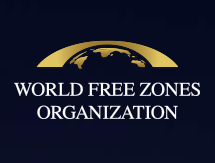Tempo de leitura: 4 minutos
The new law for special economic zones (SEZs) will comply with the global trade rules of the WTO and it will have a single-window clearance system besides world-class infrastructure and easy customs procedures, Commerce Secretary B V R Subrahmanyam said on Wednesday. The government on Tuesday proposed to replace the existing law governing SEZs with a new legislation to enable states to become partners in the ‘Development of Enterprise and Service Hubs’ (DESH). The existing SEZ Act was enacted in 2006 with an aim to create export hubs and boost manufacturing in the country. However, these zones started losing their sheen after the imposition of a minimum alternate tax and the introduction of a sunset clause for the removal of tax incentives.
Explaining the rationale behind the new law, the secretary said India needs large industrial manufacturing zones, which have world-class infrastructure so that those places become manufacturing hubs of the future. “We are in the process of drafting a SEZ 2.0… We will recast the SEZ Act in the next couple of months. “This new Act will lead to the revival of activities in SEZ areas. They will be manufacturing for both international and domestic markets,” he told reporters, adding that in the next few months, contours of the new law will be ready. “The new SEZ Act will be WTO-compliant and will have a single window (clearance system). High-class infrastructure will be there and more benefits will be there,” he said.
Dispute settlement panel of the Geneva-based World Trade Organization (WTO) in its report on October 31, 2019, has ruled that India’s export-related schemes (including SEZ scheme) are in the nature of prohibited subsidies under the Agreement on Subsidies and Countervailing Measures and are inconsistent with WTO norms. India has appealed at the WTO’s appellate body against this ruling. Currently, SEZs account for about 20 per cent of India’s total merchandise exports. Originally, SEZs came up to take advantage of tax benefits but after the imposition of the sunset clause, those incentives are no longer there for the past two years to any new units. “So, there is a need to move beyond SEZ Act,” Subrahmanyam said, adding that the Centre will partner with states so that they become part of DESH.
Giving hint about provisions that could become part of the new law, he said there can be a single-window clearance system for both central- and state-level clearances and for that, “we may even think of putting states on the approval bodies either at state or regional level”. He also informed that today, about 20,000 hectares of SEZ land and about 10 crore sq feet of built-up area is vacant in SEZs. Some other issues raised by the industry about SEZs include the matter of payments. Payments for goods sold from SEZ to the domestic market are made in the rupee but for services, it is in dollars. Products sold from SEZ in the domestic market attract customs duties. Talking about the Budget, the secretary said several measures are announced for the export sector. About the gems and jewellery sector, he said import duty on cut and polished diamonds and gemstones to five per cent and zero on sawn (or raw) diamond will help make India jewellery hub of the world.
Due to the COVID-19 pandemic, a lot of small-value jewellery is traded on e-commerce, a lot of these orders are happening online. Finance Minister Nirmala Sitharaman has made it clear that in the next couple of months, by June, the government will come out with easy e-commerce rules for gems and jewellery business, he said. He also said that exemptions are being provided on items such as embellishment, trimming, fasteners, buttons, zipper, lining material, specified leather, furniture fittings and packaging boxes that may be needed by bonafide exporters of handicrafts, textiles and leather garments, leather footwear and other goods.
Explaining it, he said some big companies in the US or Europe specify about the kind of buttons or threads they want in their clothes and for that, Indian exporters have to import these goods, which were earlier subjected to duty and now these items have been exempted. A lot of customs duties on chemicals have been reduced and that will enable exports, he said adding customs duties has also been rationalised for the electronics sector and this move would boost domestic manufacturing. “I think there is a fair amount of understanding between commerce and finance (ministries) that actually reducing tariffs on inputs helps exports a lot,” the secretary said.





Os comentários foram encerrados, mas trackbacks e pingbacks estão abertos.